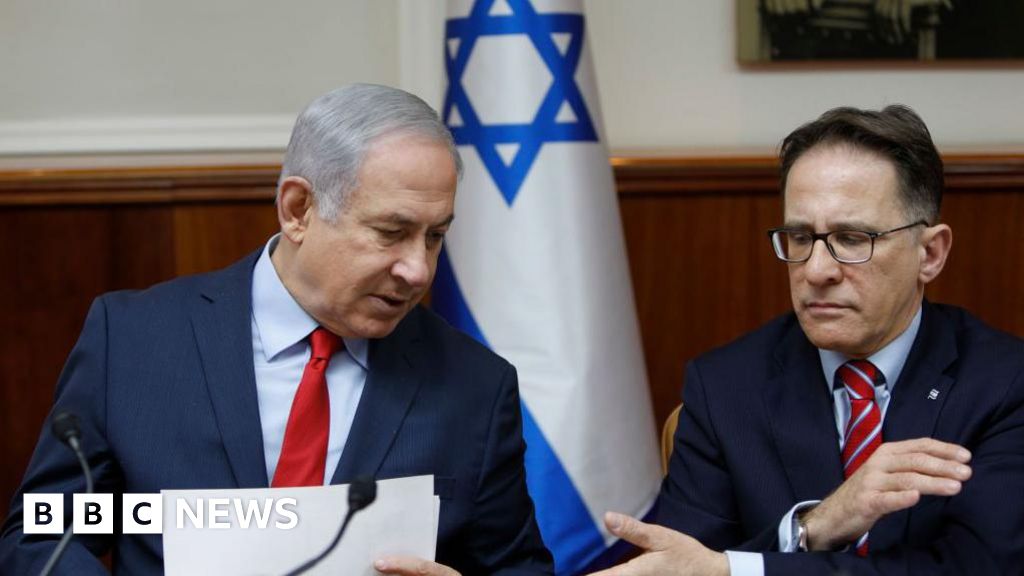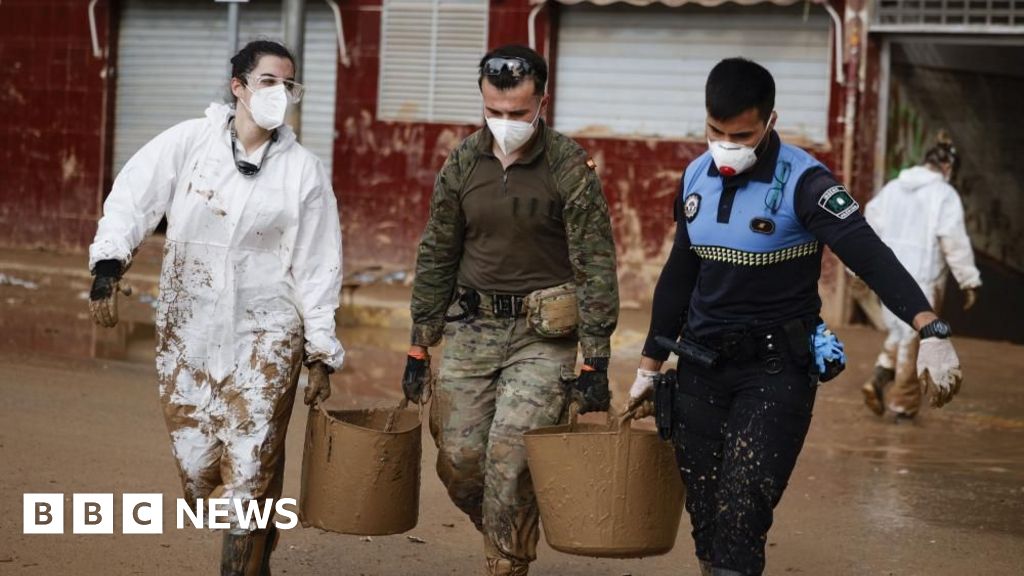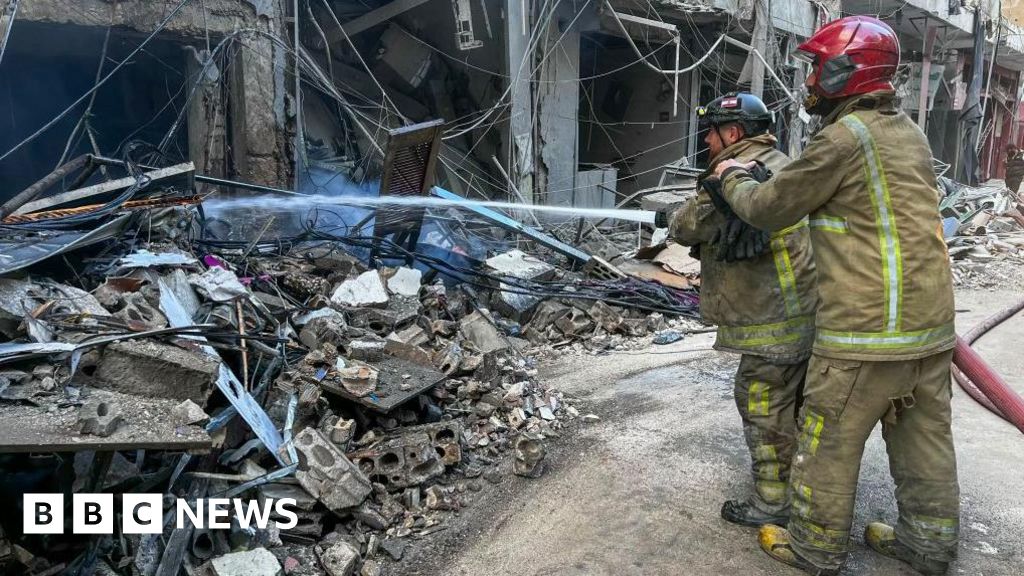ARTICLE AD BOX
By Divya Arya
BBC News, Delhi
Image source, Manjula Pradeep
Image caption, Manjula Pradeep is a Dalit activist"Only when I met her, did I realise that I had the gun but no bullets to fire it."
This is how Bhavna Narkar, a 28-year-old Dalit woman activist, described her mentor, Manjula Pradeep, 52. Ms Narkar is one of dozens of women Ms Pradeep has been training to help rape survivors - especially those from the Dalit community - get justice.
Dalits (formerly known as untouchables) are on the lowest rung of a deeply discriminatory Hindu caste system. As a historically disadvantaged group, they are protected by law, but they continue to face systemic and widespread prejudice and violence. And for Dalit women, who account for about 16% of India's women, that includes sexual violence. Rape has often been used by upper caste groups to punish or shame the community.
This year, Ms Pradeep, who has been fighting for Dalit women's rights for 30 years, co-founded the National Council of Women Leaders.
"It was a long cherished dream to develop women leaders from within the Dalit community," she said. "While I was documenting cases of sexual violence during the Covid pandemic, I felt it was time that an organisation was conceived - of leaders to help women live with respect and dignity."
Ms Narkar lives in a small town in the western Indian state of Gujarat, where poor Dalit women lack access to education and employment, as they do across India.
"Women are angry and want justice when faced with sexual violence but find it hard to raise their voice even within families and the community because we lack knowledge of our own rights and the laws meant to protect them," Ms Narkar said.
Image source, Getty Images
Image caption, Dalits are at the bottom of Hinduism's discriminatory caste systemWhen she heard Ms Pradeep speak at a gathering of Dalit women in January 2020, it changed her life, she said. It made her feel that justice was accessible.
Ms Pradeep spoke with passion and had concrete ideas to tackle systemic barriers, including training rural women with basic legal knowledge.
"I call them barefoot lawyers and they are key to helping survivors access the justice system and battle stereotypes," Ms Pradeep said.
"The entire criminal justice system is prejudiced against Dalit women. In courts, there is a lot of victim shaming - questions like, 'Why would men from the upper caste rape her? She is an untouchable. She must have invited them for a sexual liaison.'"
Now, armed with the ability to navigate the system and cope with the backlash and threats from perpetrators, Ms Narkar feels empowered. She has joined a local Dalit rights organisation and is the first to reach out to the survivor when she hears of rape cases in the area.
Government data shows that reported cases of rape of Dalit women increased by 50% between 2014 and 2019. But studies show that most cases of rape of Dalit women go unreported. Lack of support from the family and reluctance on the part of the police to register complaints against upper caste men are common barriers.
So in her training, Ms Pradeep stresses boosting the morale of the survivor and helping her understand the need for a detailed police complaint. That instinct came from her own experience of loneliness as a survivor of child sexual abuse, she said. She was just four years old when she was sexually assaulted by four men in her neighbourhood.
Image source, Getty Images
Image caption, The death of a Dalit woman who was gang-raped sparked protests last year"I remember I was wearing a yellow frock that day," she said. "I can still remember their faces and what they did. That rape changed me, it made me a very shy and fearful child. I was afraid of strangers and would hide when anyone came to my house."
She kept the assault a secret. She felt too vulnerable to share it with her parents, she said. Her mother was just a teenager, married when she was just 14 to a man 17 years older than her. And her father was unhappy because he had wanted a son instead of another daughter.
"He used to beat my mother, make fun of me and call me ugly, he made me feel unwanted and unloved," she said.
Her father, who has since died, was born in the northern state of Uttar Pradesh but moved to Gujarat for work. And in his new home, he hid his Dalit identity by dropping his last name. He made his wife and daughter adopt his first name - Pradeep - as their last name.
And yet, Ms Pradeep said, her caste identity didn't remain hidden. The discrimination took various forms, even in a big city like Vadodara, where they lived.
"When I was nine years old, my teacher asked students to be ranked by their cleanliness, and despite being one of the tidiest children in class, I was ranked last - only because Dalits are perceived to be unclean - and felt deeply humiliated," she said.
After school, she decided to get a degree in social work and law.
Image source, Manjula Pradeep
Image caption, Ms Pradeep has helped several Dalit rape survivors seek justiceVisits to rural areas inspired her to take up the cause of Dalits. Around 1992, she became the first woman to join Navsarjan, a Dalit rights organisation founded by five men when one of their colleagues was shot and killed by upper caste men. A decade later, she went on to win the election to become the organisation's chairperson.
"It's rare for a Dalit woman to rise to that level. I won an election defeating four men to lead an organisation that worked with both men and women," she said proudly.
She is now able to focus on rape survivors as a key issue. She has now helped more than 50 Dalit rape survivors fight for justice, with many cases ending in convictions.
The work has strengthened her belief that Dalit women need to be informed and trained to become respected leaders within their community.
"I don't want another Manjula," she said. "I want these women to have their own identity and growth curve - not under my shadow but as independent individuals."

 3 years ago
127
3 years ago
127








 English (US)
English (US)